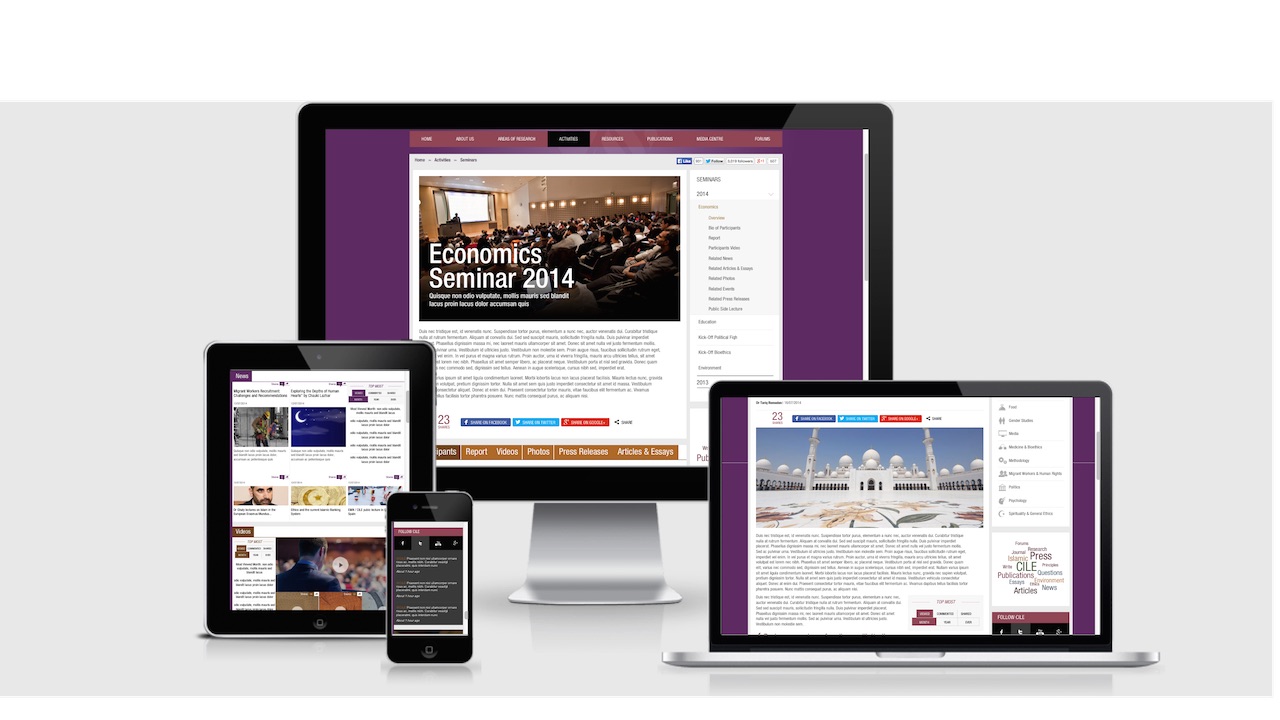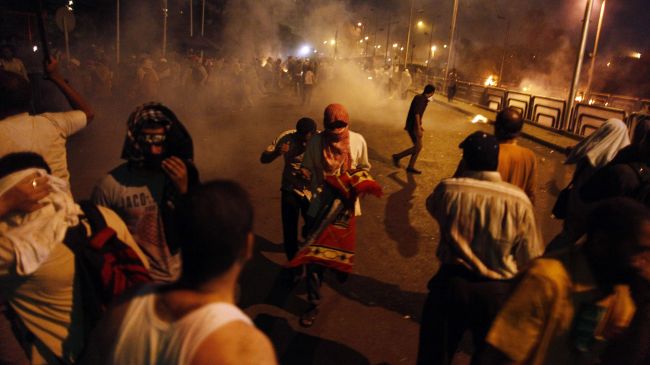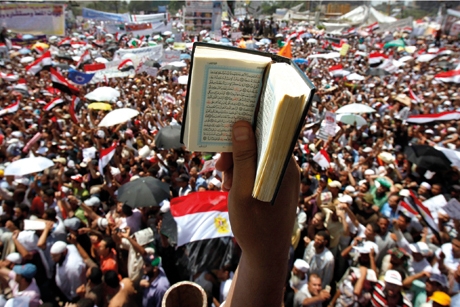Ramadan has ended. Around the world, nearly one-and-a-half billion people fasted with discipline and devotion. In so doing, they breathed new life into the experience of the world’s religious and spiritual traditions: mastering hunger, bodily appetites and even their human impulses to release the noblest energy of their being.
Theirs is the aspiration to the divine, to generosity, to the compassion that begins with resistance to self and with giving to neighbours. It has been a month of discipline that teaches us the deepest meaning of dignity and liberty for humankind, among humankind.
Fasting is, first and foremost, an exercise for identifying and managing adversity in all its forms. With faith, in full conscience, fasting calls women and men to an extra degree of self-awareness. Instead of looking outside of ourselves and counting potential enemies, fasting summons us to turn our glance inward, and to take the measure of our greatest challenge: the self, the ego, in our own eyes and as others see us. The aim is to gain mastery over ourselves, to become aware of our illusions, to become the agents of our actions — and not the object of our own pretensions or someone else’s gaze. The philosophy of fasting calls upon us to know ourselves, to master ourselves, and to discipline ourselves the better to free ourselves. To fast is to identify our dependencies, and free ourselves from them. That is adversity number one.
We must master our egoism, and through this mastery, step outside ourselves and educate ourselves in giving. Fasting requires that we rediscover all that is alive around us, and reconcile ourselves with our environment. Fasting with our bodies enables us to see more clearly with our hearts: the Quran reminds us that hearts become blind, not eyes. A blind heart sees nothing but self and its illusions; it cannot contemplate nature, the living creatures around it, and those like it. There can be no faith, and no fast, without solidarity. We must step beyond ourselves, and become a corporal presence, a gift of the heart, and an endowment of being. Human nature sets taking care of self, and consumption above all; the faster’s spiritual aspiration is to become attentive to others and to give without cease. That is adversity number two.
Between the prison of ego and solidarity with others, we must seek—in dialogue with the Divine — a balance. The greatest challenge confronting humankind is that of being and remaining within the harmony of that median way of which the Quran speaks: to confirm ourselves as a spiritual community of the true Middle Path. Our task is to nourish spiritual longings that respect the laws of nature: fasting by day reminds us of each one’s right to break the fast by night. Emancipation from the self cannot be achieved if the individual’s dignity is not respected. It follows that poverty, injustice, oppression and torture, which by their very nature forbid the experience of a free and noble fast, are scandals upon our conscience that we must combat, and can never accept. The search for the Divine obliges us never to compromise basic human rights. That is adversity number three.
The experience of fasting is thus profoundly individual and imperatively collective. Each of us, in the intimacy of her or his social life, is called upon to rise above self, to be kind, gentle, generous and filled with compassion, as the Messenger (PBUH) taught us: “God is kind [Rafiq] and He loves kindness [ar-rifq], and confers upon kindness which He does not confer upon severity and violence.” Through mastery of self, the body and its urges, and of the tongue, the fast becomes a school for solidarity, generosity, and respect in the name of common human dignity. And in the name of this very dignity, the experience of the fast expects that our conscience respect women’s and men’s basic rights, that we be courageous, and always dare to raise our voices against the torturers, the exploiters, the racists and the masters of intolerance.
To fast means to stand with determination against all who exploit the poor, oppress people, propound racism (of every kind without exception); against those who deny freedom of conscience and of worship, who restrict freedom of expression. Fasting, in the name of the basic rights of all, is to resist the folly of the few against human dignity. It is necessary to step outside of self to ensure respect for dignity, and with it the rights of all, individual and collective. Fasting is both introspection and necessity, a message for humanity: resistance to self and its illusions is both a condition and requirement for becoming agents of a human peace founded upon equality and liberty, justice and respect. That is the ultimate adversity.
Fasting teaches us the secrets of reconciliation, of transcending our weakness and our human contradictions: there can be no freedom without discipline, no true peace without struggle and resistance. Fasting reveals humanity’s curious destiny: the serenity of unbound conscience can only be won by a struggle against the dictatorship of illusion, of false needs or of despots. The month of Ramadan has ended; it has taught us that our humanity demands full awareness and full-time commitment, for ourselves and for our fellow human beings. Until yet another month of Ramadan will return to remind us, as a cycle of conscience, in the face of all adversity, and with serenity that “we are from God and to Him is our return.”









